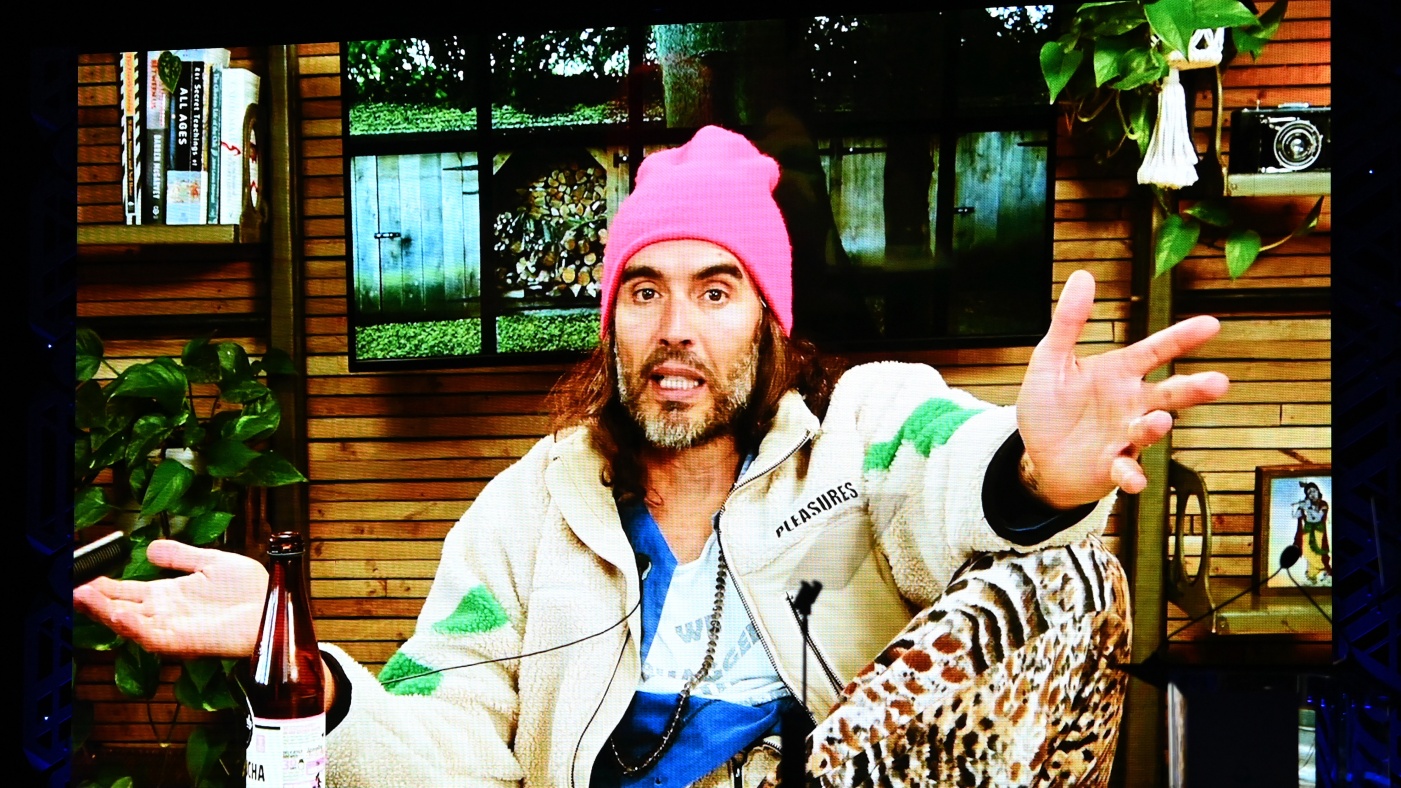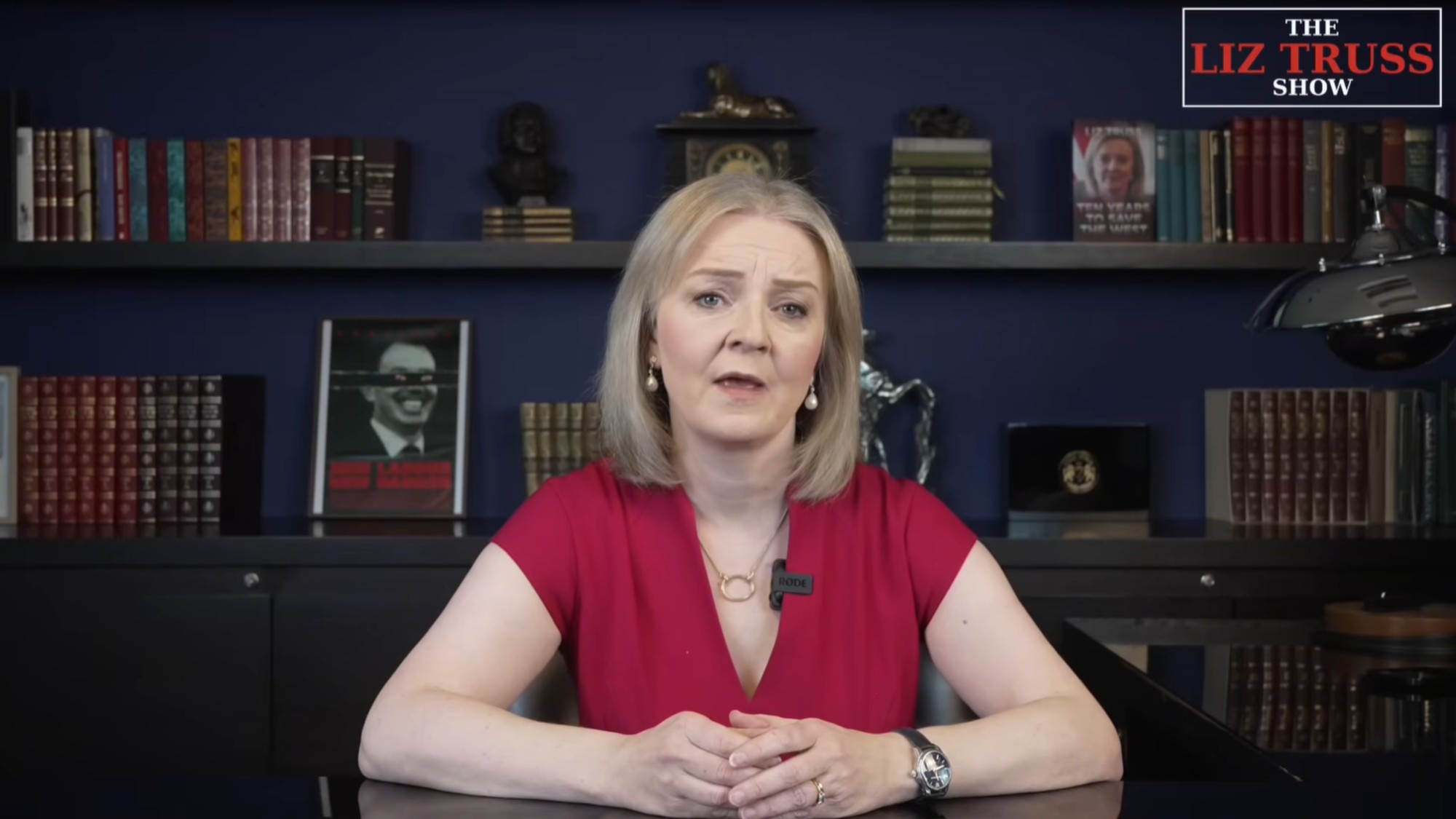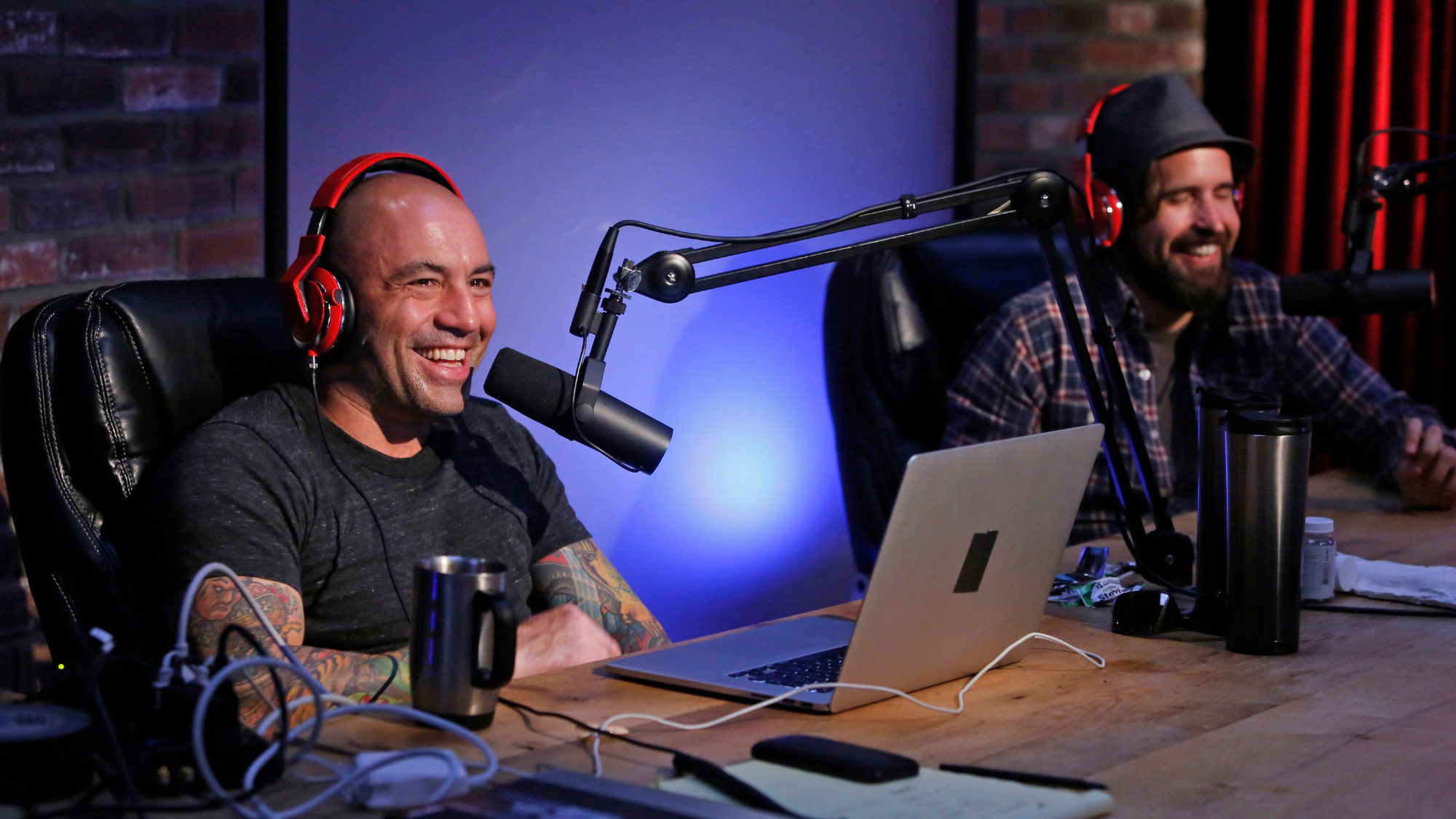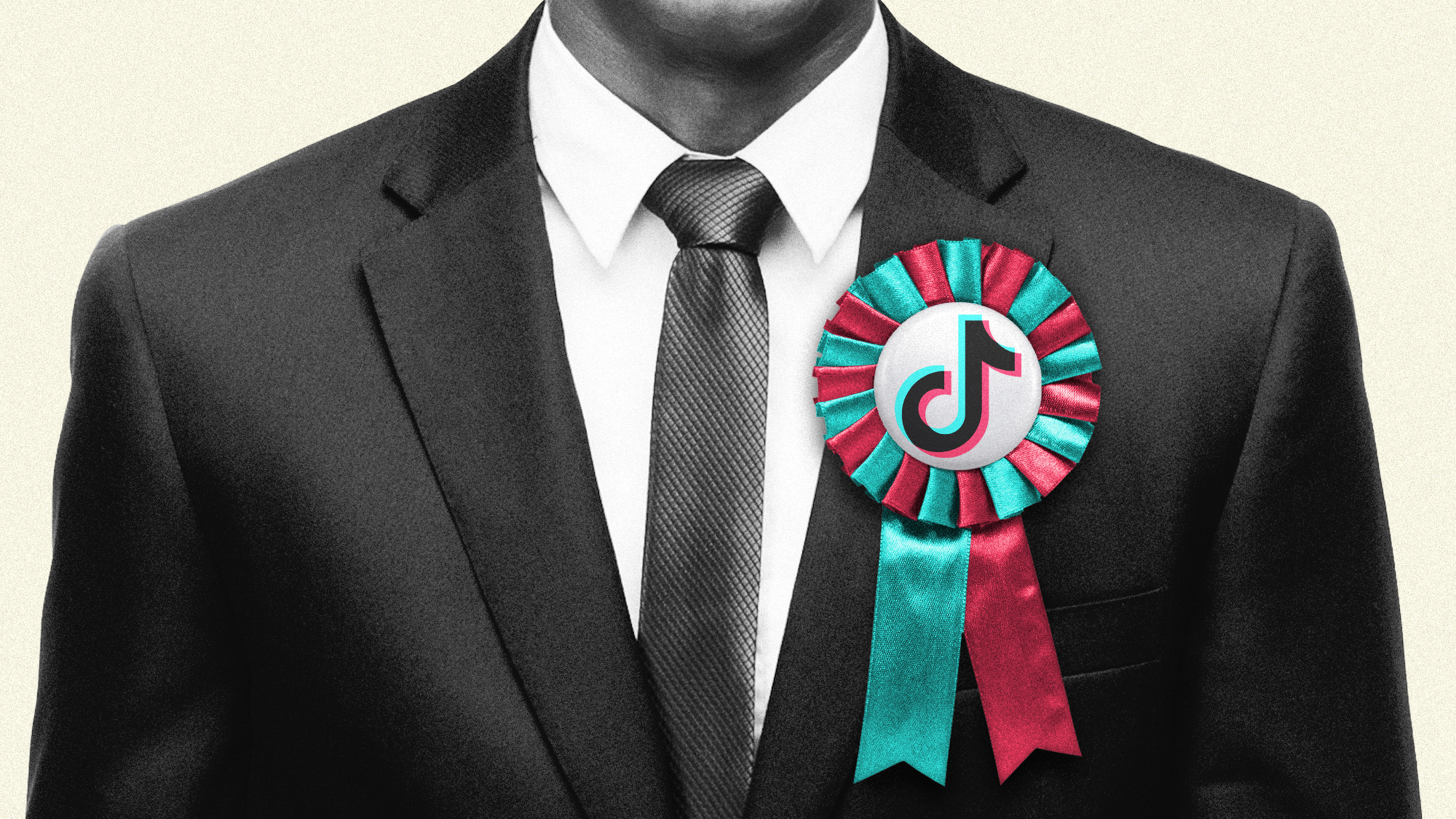How Russell Brand built up his online following
The former comedian has tens of millions of followers across his social media platforms

A free daily email with the biggest news stories of the day – and the best features from TheWeek.com
You are now subscribed
Your newsletter sign-up was successful
Russell Brand, who has been accused of rape, sexual assault and emotional abuse by four women, was a prominent comedian and film star who later turned away from the Hollywood limelight to promote his controversial views online.
On Saturday, The Times, The Sunday Times and Channel 4's "Dispatches" released a joint investigation accusing Brand of multiple sexual offences.
Four women allege that Brand assaulted them between 2006 to 2013, at the height of his international fame.
The Week
Escape your echo chamber. Get the facts behind the news, plus analysis from multiple perspectives.

Sign up for The Week's Free Newsletters
From our morning news briefing to a weekly Good News Newsletter, get the best of The Week delivered directly to your inbox.
From our morning news briefing to a weekly Good News Newsletter, get the best of The Week delivered directly to your inbox.
Brand released a video on Friday vehemently denying the allegations. He said that his relationships were "always consensual".
How did Brand rise to fame?
In the mid-2000s the Essex-born stand-up comedian was "ubiquitous on British TV and radio", said The Times. He shot to fame as the "hyperactive motormouth in tight jeans with the Dickensian vocabulary" when he presented the reality show spin-off "Big Brother’s Big Mouth" on Channel 4 between 2005 and 2007.
He went on to enjoy international fame after landing "plum roles" in films such as "Forgetting Sarah Marshall" and "Get Him to the Greek". However, he is perhaps more notoriously known for "tormenting Andrew Sachs in a phone call on BBC radio with Jonathan Ross" as well as once being married to pop star Katy Perry, said the paper.
What has he been doing more recently?
Now 48, Brand has "reinvented himself remarkably successfully as an online influencer, wellness guru and conspiracy theorist" in recent years, and now claims to be "the leader of a movement of 25 million people across all his digital channels", said The Times. He has some 6.6 million followers on YouTube, 4 million on Instagram and 2.2 million on TikTok, as well as hosting a popular wellness podcast on Spotify.
A free daily email with the biggest news stories of the day – and the best features from TheWeek.com
He launched his internet career in 2014 with a YouTube series entitled "The Trews: True News with Russell Brand", and from the beginning was a prolific video-maker, publishing more than 200 videos in his first year. Over the next nine years, his YouTube channel would go on to be increasingly criticised for his hardening views and platforming of conspiracy theories.
The "sharp spike in appetite" for his often controversial views, however, came during the pandemic years. He made videos suggesting that "the response of governments to the Covid pandemic along with that of the pharmaceutical industry and the 'mainstream media' were part of a conspiracy", said The Guardian.
“If the response to the pandemic was about saving lives why did nothing happen until it affected the stock market?” he asked in one video.
Who are the 'regular Brand targets'?
After sharing a video in 2021 advising his fans to circumvent Covid-19 safety measures, YouTube removed it for breaking its rules around misinformation. This prompted Brand to move his channel to Rumble, where he launched a new series titled "Stay Free with Russell Brand".
There are "a troupe of regular Brand targets" who make up the most frequent subjects of his videos. They include Bill Gates, "whose motives for investing in laboratory-grown meat have most recently been questioned", as well as former US President Barack Obama, who he accuses of being "a war criminal", and Ukraine’s President Volodymyr Zelenskyy, who Brand has criticised "for his apparent part in allowing his country to be turned into a colony for US corporate interests".
He also welcomes "celebrity guests" on to his show, such as Jordan Peterson and former Fox News presenter Tucker Carlson, "for whom Brand appears to have growing respect", said the paper. Brand described Carlson in one video as an "anti-establishment figure" who "now exists in the same space as we do in independent media".
One of the women who has accused Brand of sexual assault, which she said occurred when she was 16 and he was 30, expressed her scepticism about Brand's self-perception as being outside of mainstream media.
She told BBC Radio 4's "Woman's Hour": "I think he was building himself an audience for years that would then have great distrust of any publication that came forward with allegations. He knew it was coming for a long time."
How much has Brand made from his platforms?
Since the allegations of rape and sexual assault, Brand's videos on YouTube have been demonetised, meaning he can no longer earn advertising revenue from them.
Tech journalist Chris Stokel-Walker, speaking to Sky News, estimated that Brand may have earned anywhere between "$70,000 to $1 million a year" on the platform from advertising revenue.
Sorcha Bradley is a writer at The Week and a regular on “The Week Unwrapped” podcast. She worked at The Week magazine for a year and a half before taking up her current role with the digital team, where she mostly covers UK current affairs and politics. Before joining The Week, Sorcha worked at slow-news start-up Tortoise Media. She has also written for Sky News, The Sunday Times, the London Evening Standard and Grazia magazine, among other publications. She has a master’s in newspaper journalism from City, University of London, where she specialised in political journalism.
-
 What to know before filing your own taxes for the first time
What to know before filing your own taxes for the first timethe explainer Tackle this financial milestone with confidence
-
 The biggest box office flops of the 21st century
The biggest box office flops of the 21st centuryin depth Unnecessary remakes and turgid, expensive CGI-fests highlight this list of these most notorious box-office losers
-
 What are the best investments for beginners?
What are the best investments for beginners?The Explainer Stocks and ETFs and bonds, oh my
-
 Why X could face UK ban over Grok deepfake nudes
Why X could face UK ban over Grok deepfake nudesThe Explainer Ofcom is investigating whether Elon Musk’s AI chatbot breached Online Safety Act
-
 Who is The Liz Truss Show for?
Who is The Liz Truss Show for?Talking Point Former PM’s new weekly programme is like watching her ‘commit a drive-by on herself’
-
 What are the impartiality rules for BBC presenters?
What are the impartiality rules for BBC presenters?The Explainer News presenters and hosts of 'flagship programmes' must adhere to tougher guidelines than other staff and freelancers
-
 Facebook: Sarah Wynn-Williams' shocking exposé
Facebook: Sarah Wynn-Williams' shocking exposéTalking Point Former executive's tell-all memoir of life behind the scenes at Meta 'makes for damning reading'
-
 For podcasts, a sharp turn to video
For podcasts, a sharp turn to videoFeature YouTube is paying creators to bring their podcasts to video
-
 What is the dead internet theory?
What is the dead internet theory?The Explainer Reality has 'begun to mirror' the conspiracy that the vast majority of internet activity is generated by bots
-
 The UK's first TikTok election
The UK's first TikTok electionThe Explainer Labour and Conservatives launch on the video-sharing app deemed so valuable by US Democrats in reaching young voters
-
 Nasty noughties: a cultural reckoning?
Nasty noughties: a cultural reckoning?Talking Point Has popular culture evolved since the 'cruelty' of the early 2000s?